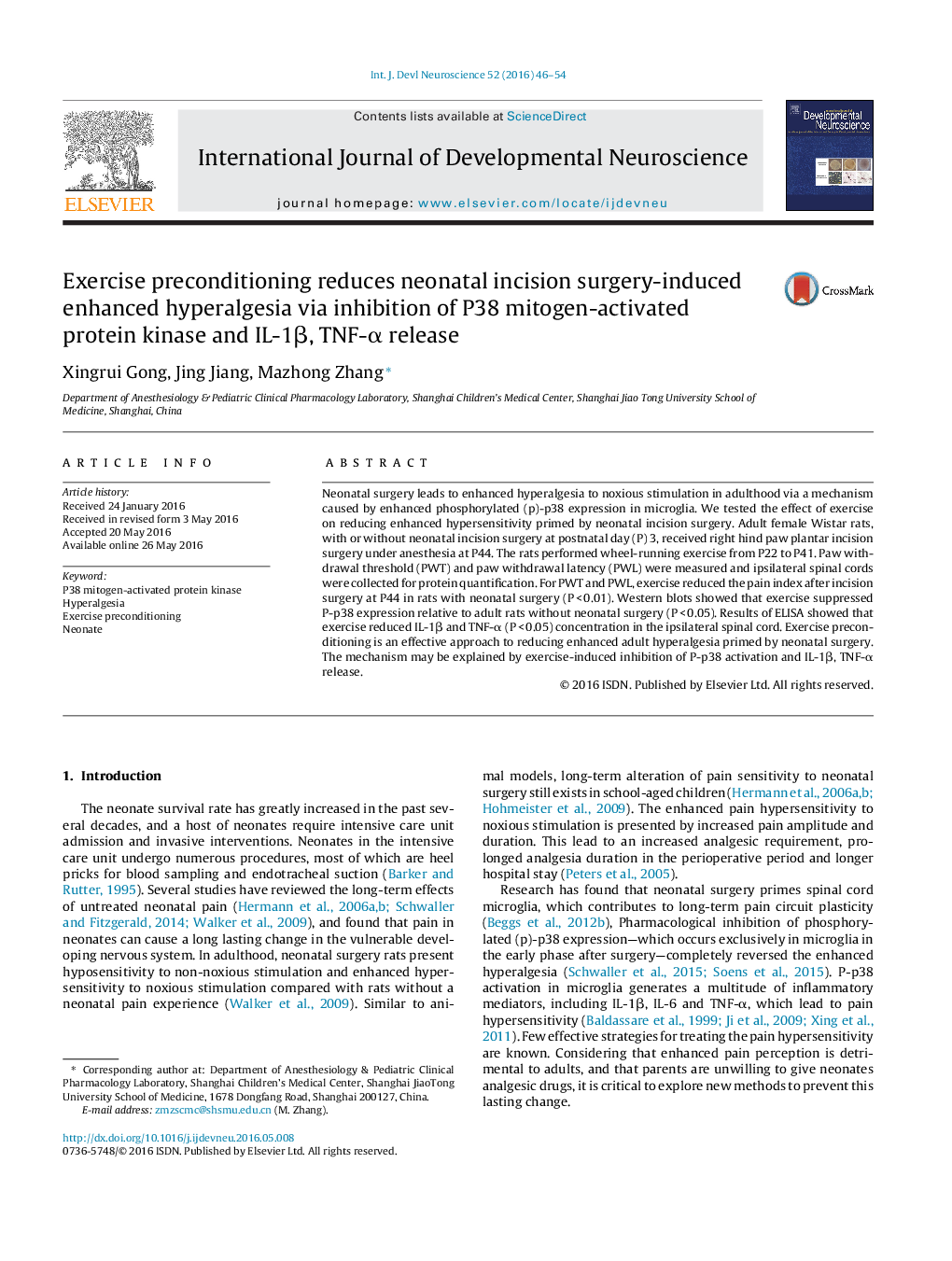| Article ID | Journal | Published Year | Pages | File Type |
|---|---|---|---|---|
| 2785581 | International Journal of Developmental Neuroscience | 2016 | 9 Pages |
Neonatal surgery leads to enhanced hyperalgesia to noxious stimulation in adulthood via a mechanism caused by enhanced phosphorylated (p)-p38 expression in microglia. We tested the effect of exercise on reducing enhanced hypersensitivity primed by neonatal incision surgery. Adult female Wistar rats, with or without neonatal incision surgery at postnatal day (P) 3, received right hind paw plantar incision surgery under anesthesia at P44. The rats performed wheel-running exercise from P22 to P41. Paw withdrawal threshold (PWT) and paw withdrawal latency (PWL) were measured and ipsilateral spinal cords were collected for protein quantification. For PWT and PWL, exercise reduced the pain index after incision surgery at P44 in rats with neonatal surgery (P < 0.01). Western blots showed that exercise suppressed P-p38 expression relative to adult rats without neonatal surgery (P < 0.05). Results of ELISA showed that exercise reduced IL-1β and TNF-α (P < 0.05) concentration in the ipsilateral spinal cord. Exercise preconditioning is an effective approach to reducing enhanced adult hyperalgesia primed by neonatal surgery. The mechanism may be explained by exercise-induced inhibition of P-p38 activation and IL-1β, TNF-α release.
